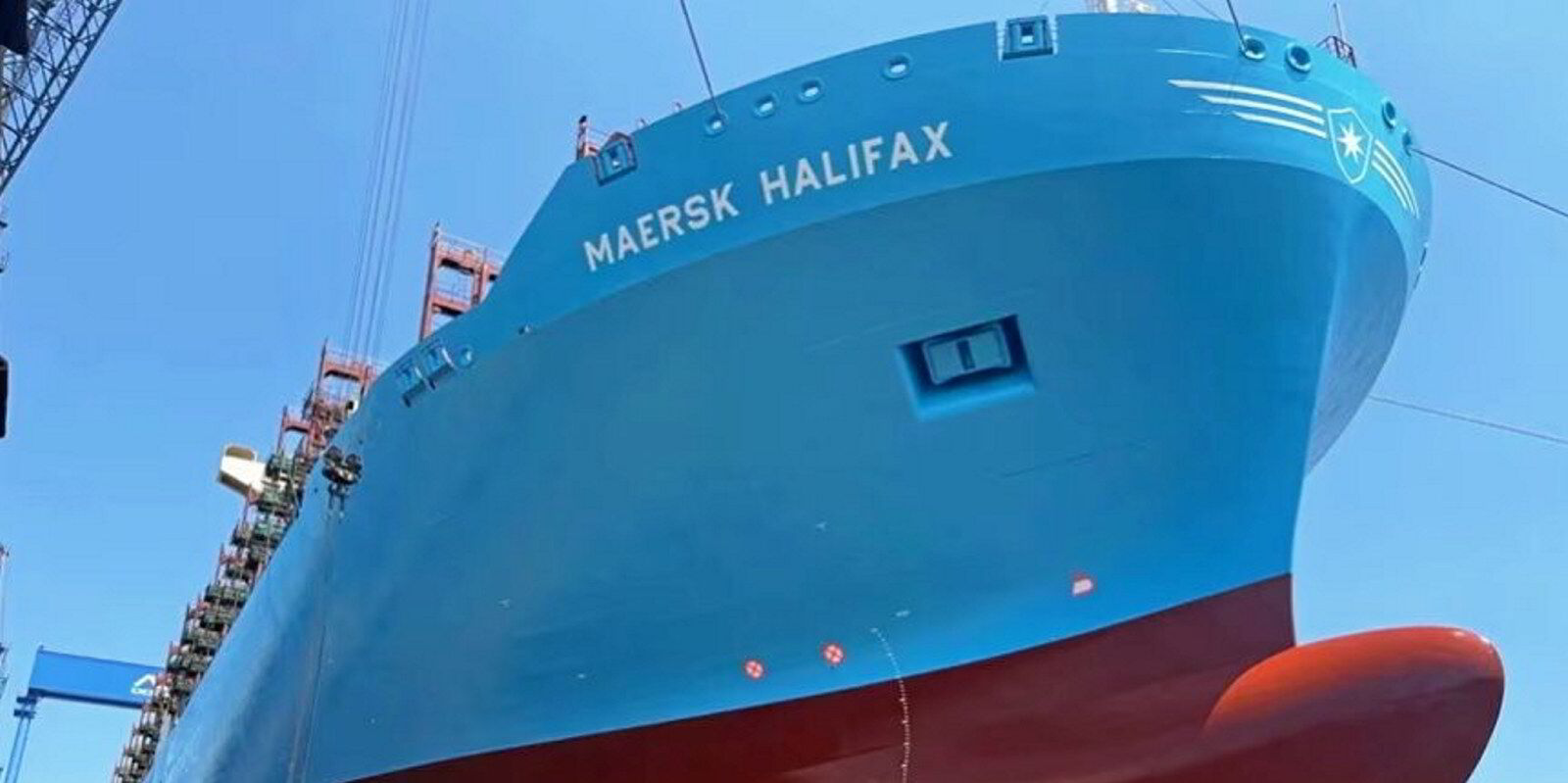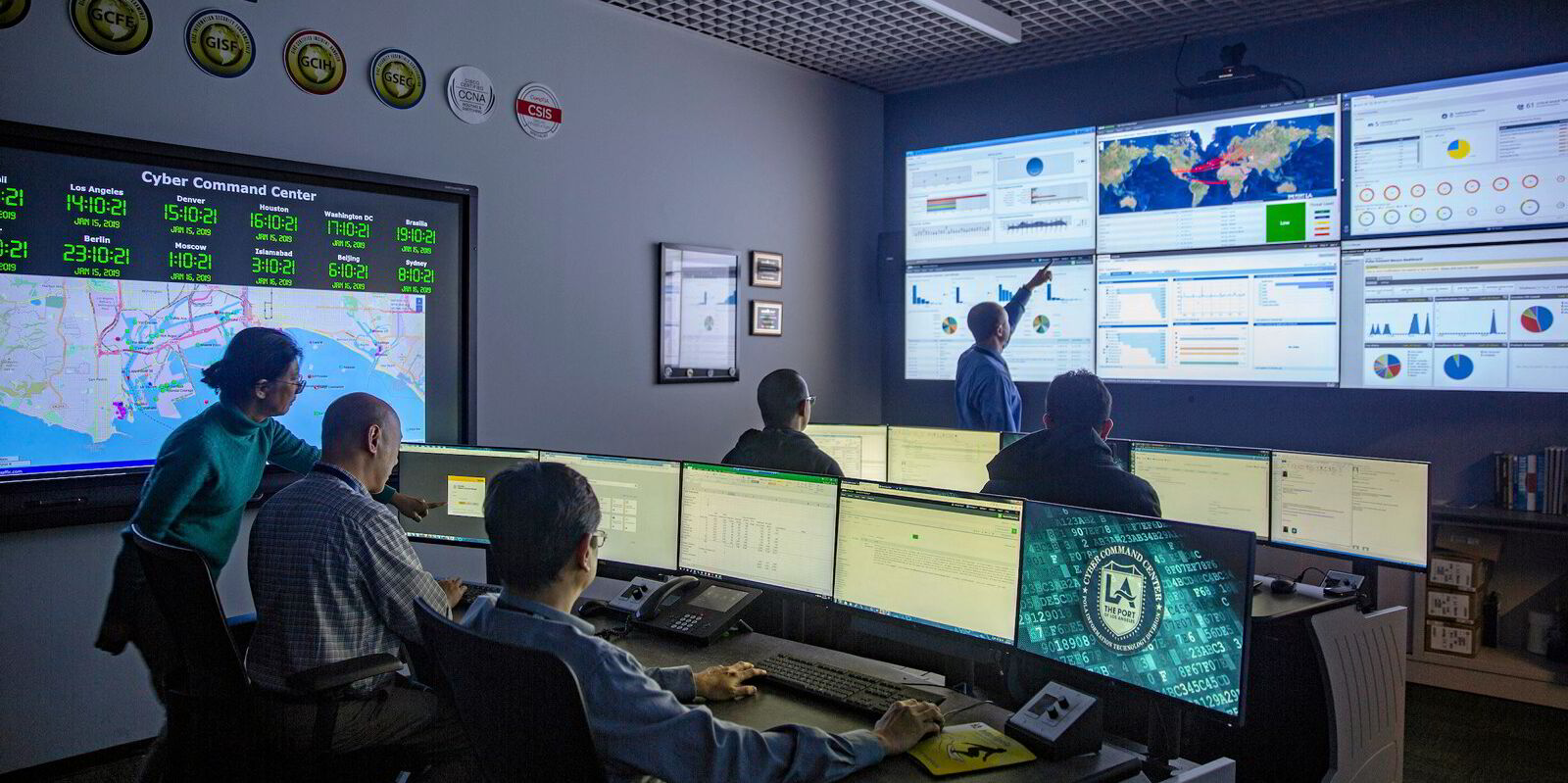Hi,
The boxship Maersk Halifax has been lengthened and converted to run on methanol as well as diesel. It took 88 days in a Chinese repair yard, with MAN Energy doing the conversion of the vessel’s engines. The ship now has a pair of methanol fuel tanks and the associated piping and safety features, as well as the original bunker tanks. A little bird told me this may not be the first lengthening of this particular ship, which has seen more than its fair share of time in repair yards.
There’s a worrying cyber trend reported in TradeWinds this week: shipowners seem to have too high a risk appetite for cyber attacks.
Also, some other tech business news: Norway’s Teco 2030, the fuel cell firm, seems to be in a bit of a financial fix, and Cargotec in Finland has offloaded MacGregor in a $500m sale, as it also looks to lose its name. MacGregor, of course, being the name for the famous rolling hatch covers invented in Newcastle for the early coal ships about 100 years ago. A real industry transformation in its day.
Craig Eason, technology editor
________________________________
Maersk completes first methanol conversion of large container ship infamous for deadly fire
by Gary Dixon

AP Moller-Maersk has carried out the first conversion of a large boxship to run on methanol. The 15,226-teu Maersk Halifax (built 2017) is now a dual-fuel vessel after 88 days of retrofitting at Zhoushan Xinya Shipyard in China.
“Following the completion of the sea trials, Maersk Halifax has returned to operation and is now servicing our customers on the transpacific trade,” Maersk said.
The Maersk Halifax is the renamed Maersk Honam, which hit the headlines in 2018 following a serious fire off Oman that killed five seafarers. The viable stern section was rebuilt at Hyundai Heavy Industries in 2019 and joined to a new bow.
Besides replacing machine parts and thereby making the engine able to operate on methanol, the retrofit operation added new fuel tanks, a fuel preparation room and a fuel supply system.
Read more about the conversion here
_____________________________________
Norway’s Teco 2030 in bankruptcy court

Marine hydrogen fuel cell developer Teco 2030 is facing bankruptcy action from the Norwegian tax authorities. The Oslo-listed cleantech group said a petition had been filed against subsidiary Teco 2030 Innovation Center, its Narvik-based production facility.
A hearing at the Midtre Halogaland District Court has been set for 5 December. Teco 2030 said this potential bankruptcy could have “significant repercussions” for the company, as the parent has a debt guarantee for the centre capped at NOK 10m (about $900,000) covering rental payments under Innovation Center’s property lease agreement in Narvik.
_____________________________________

Russian hacktivists target shipyards and ports in ‘constant’ attacks
by Paul Peachey

Russian hacktivist organisations are behind a constant stream of cyber attacks on ports and shipyards based in countries that have supported Ukraine. Groups including the Cyber Army of Russia Reborn are said to have targeted ports in countries including Australia, Germany and Poland, as well as a Japanese shipyard in the past two months, said Tom Scriven of cyber security firm Mandiant, a Google subsidiary.
_____________________________________
Spray and pray: The cyber criminal tactic hurting shipping
by Paul Peachey

The average shipping company will suffer a cyber attack every five days driven by indiscriminate “spray and pray” attacks by cyber criminals casting their net wide to make money, according to a report. DNV Cyber, the cyber security division of classification society DNV, said an average company will see 65 to 80 cases a year of breaches, suspicious activity or identified threats from insiders that could potentially knock out systems and force vessels out of action.
_____________________________________
Cargotec sells MacGregor to equity firm Triton for $500m
by Jonas Walsgard

Finland’s Cargotec has signed an agreement to sell its MacGregor business arm to funds managed by private equity firm Triton. The enterprise value of the transaction is €480m ($508m). MacGregor offers products, services and solutions within sustainable maritime cargo and load handling.
“MacGregor stands out due to its engineering capabilities, broad and sustainable product offering, high-quality equipment and strong reputation,” said Ilkka Tuominen, investment advisory professional at Triton.
_____________________________________



